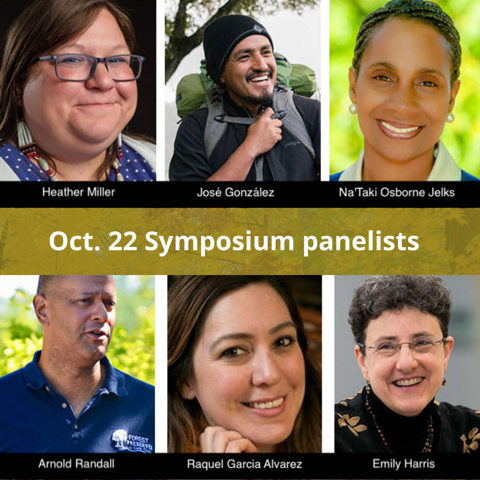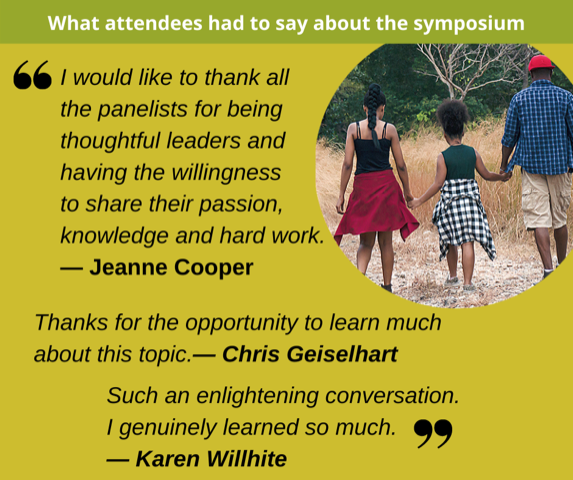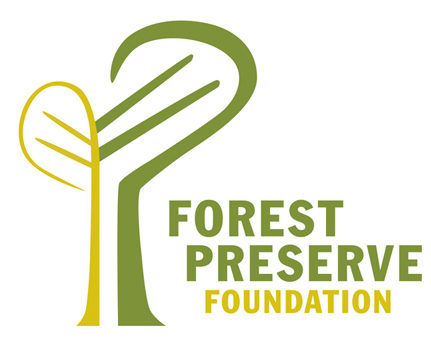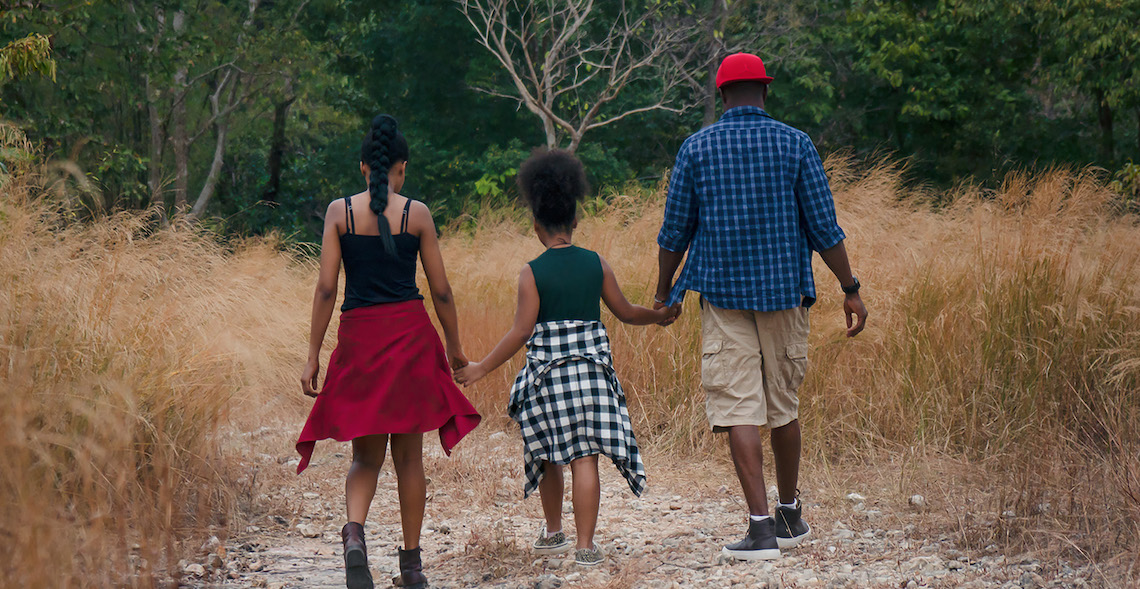The Forest Preserve Foundation had a tremendous response to its Oct. 22 symposium (recording above) that featured two panel discussions on the topic “Racial Equity and Access to Nature.” More than 300 people from around the country joined the virtual 90-minute program.
Third annual
An annual Foundation event, the symposium brought together six environmental leaders whose work and passions center on connecting people to nature and the natural world.
Laura Perlow, the Foundation's interim executive director, kicked off the program by saying the discussion directly addresses the Foundation's mission: to "enhance the outdoor experiences for all communities. Next, Teresa Salus, a board member and a manager for REI, noted that the outdoor retail company has, in recent years, "invested more focus in those for whom the outdoor culture may not be welcoming." REI has funded several Foundation-supported trail-enhancement projects over the years.
The first question
The first panel discussion got underway with a question from moderator Cassandra West, "What does access to nature mean?"

Dr. Na'Taki Osborne Jelks, assistant professor of environmental and health sciences at Spelman College responded: “Access to nature is a human right. It's about having a sense of connection to the natural world on which all of our lives depend... and it really should be that great equalizer. Everyone should have equitable access to the trees, to parks and green spaces.”
Jelks was part of the advocates panel, which also featured Heather Miller, executive director of the American Indian Center, and José González, founder of Latino Outdoors. They both drew on their expertise and cultural heritages to talk their own relationships with nature and how that informs the work they do.
Gonzalez said his relationship to nature comes from being an immigrant from Mexico.
“My early years were spent where the outdoors was really just outside and so it came from that connection to nature," he said. "And then migrating to the United States was my introduction to really a set of public lands in a way that I hadn’t known them before, such as state parks and seeing sequoias for the first time. Se seeing some of those majestic landscapes really made an impression on me.”
Miller, a member of the Wyandotte Nation, addressed the misperceptions the public has about Native Americans. We get these very stereotypical images of us and in [our] relationship with nature that aren't oftentimes right," she said.
The panelists also shared their insights about the challenges facing diverse communities due to historic experiences that hold them back from connecting with nature, the very real barriers to accessing green space, and the varying ways communities seek to recreate in the outdoors.
 Closing the nature gap
Closing the nature gap
Further, they shined a light on how they, as creative leaders, are working to close the nature gap, including the promising youth conservation programs taking place around the country, from the Earth Tomorrow program in Atlanta to the Conservation Corps and Youth Ambassador programs in the Forest Preserves of Cook County, all focusing on exposing and engaging youth with nature and future job paths.
The second panel spotlighted the Forest Preserves of Cook County, represented by General Superintendent Arnold Randall; Raquel Garcia-Alvarez, Stewardship Program Coordinator; and Emily Harris, a member of the Forest Preserves of Cook County Conservation and Policy Council.
Garcia-Alvarez pointed out that "communities of color are three times more likely than white communities to live in nature deprived spaces and that applies to the state of Illinois."
In responding to what entities like the Forest Preserves can do to address racial equity, Harris replied:
“Being an anti-racist, focusing on racial equity, is about policy as much as it is about individual action. I'm pretty proud that the Conservation and Policy Council has helped the Forest Preserve board with a new position paper that addresses specific policies about how to take an anti- racist lens to the work of the Forest Preserves. That position paper’s called “Moving Toward Racial Equity,” and the guidance in it about how to apply a racial equity lens addresses all future plans, programs, policies and investments.”
Sharing resources
Throughout the discussion, hosted on online platform Zoom, participants shared resources in the chatbox. Here are some worth checking out:
From Na’Taki Osborne Jelks: National Wildlife Federation's Earth Tomorrow Program: https://www.nwf.org/Educational-Resources/Education-Programs/Earth-Tomorrow
From Linn Carey: For those in the Chicago area, please contact BackYard Nature Center through our website www.backyardnaturecenter.org or email Linn Carey at lcarey@backyardnaturecenter.org to discuss ways we can facilitate adult and children nature based experiences in New Trier Township including restoration, nature hikes, education and play. Thanks much, wonderful discussion.
From Jim Boudreau Chicago Botanic Garden offers the Science Career Continuum for junior high and high school Chicago Public School students. The Garden also hires 200 each year for its Windy City Harvest Program, an urban agriculture/jobs training program in Chicago. The Garden also has a masters and PhD program in plant biology and conservation in partnership with Northwestern University. See chicagobotanic.org for more details.
From Doris Johnson : https://diversityinconservationjobs.org/
From Stephen DeFalco: The Forest Preserves has a kayaking program based in Maywood (Central Cook County). We also offer free snowshoe rentals at all our nature centers during the winter when there is enough snow.

